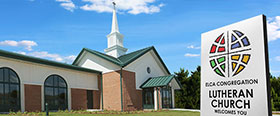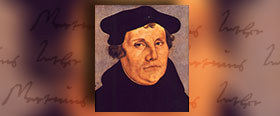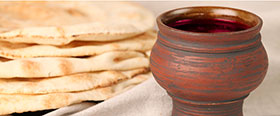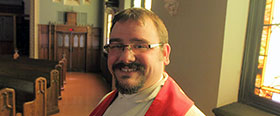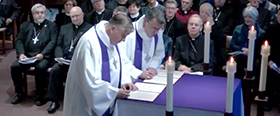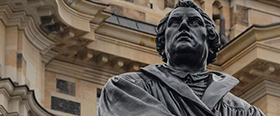Phillip and June Nelson, 2-11-14

June and Phillip Nelson
Knowing a community’s rules makes living in accompaniment easier. Phillip and June Nelson, ELCA missionaries in Cameroon, have found that the unwritten rules governing the seemingly chaotic traffic on Cameroon’s roads also apply to daily life. To support Phillip and June, or another of the ELCA’s over 240 missionaries in the global church, click here.
Dear friends,
Life in Cameroon is very much like driving in Ngaoundere. It is a series of negotiations with those around you. Some going in the same direction, others going in the opposite direction, facing you briefly along the road you happen to be traveling. There are comforting written laws governing the rules of the road that initially put visitors traveling on them at ease. However, after a short time, one begins to see what, to a western mind, is a deliberate deviation from the stated rules that brought such feelings of well being.
It takes a few years to unravel that there is a different set of unwritten rules that governs all the vehicles moving along the same road in Cameroon. Negotiations that one finds oneself involved in follow a pattern that adheres to this unwritten but usually well-understood rule of social hierarchy, pressing need, emergency and politeness of acceptance of the situation that that community encounters at the time. This tends to be obvious only to those born here and those who have lived in and around the people here for more than one or two years.
While driving on the streets of Ngaoundere you will find semitrailer trucks, buses, delivery trucks, large expensive SUVs, second-hand SUVs, a few expensive luxury cars, smaller personal cars, taxi cars, motor cycle taxis, push carts, bicycles and pedestrians. This looks like an easily identifiable hierarchy of size in regard to status of place and priority on the road. But, this too can be misleading.
The question of who is driving or riding in the encountered vehicle is also a factor that can trump size or luxuriousness of the conveyance you encounter. This requires that you, as the driver, must be aware of everyone around you. One of the ways I do this is by observing the license plate or lack of it on the vehicle in question. Government, military, diplomatic or ordinary plates give an indication of status. I find myself looking at everyone driving or riding in the vehicles around me as well, and trying to understand what place in the communal hierarchy we fit into at the time.
There is still another dimension that often affects interactions between members of the current mobile community you are interacting with. This is the perceived urgency of vehicles around you. People make allowances for those who seem to have a critically urgent rendezvous. Once when June and I were going to take the train in Yaounde we had a driver who understood this kind of negotiation.
Traffic in Yaounde that afternoon was the worst I have ever seen. This man came to one impassable place where there were buses coming out onto the road, and they had to have people stop traffic in both directions so the outgoing bus could get onto the street. Well, needless to say, the traffic was snarled beyond even his abilities of negotiation. So he turned on his hazard flashers and slowly made a 180-degree turn in the middle of the street. I would never have had the courage to manage such a maneuver. I was amazed at the patience and acceptance of those around us as we finally made it to the train station barely in time to hop on before it left.
This whole letter may seem confusing to you, but in the end this story is indicative of the attitude people have for the community around them here in Cameroon. Allowances are made for many reasons and in the end most of the people get to where they are going. Naturally, there are misunderstandings and some people get hurt. But everyone recognizes that they are on the same road together, trying to get to their destination. This recognition provides a chance to interact in community together, all the time making allowances for individual needs and urgencies.
Blessings,
June and Phil

